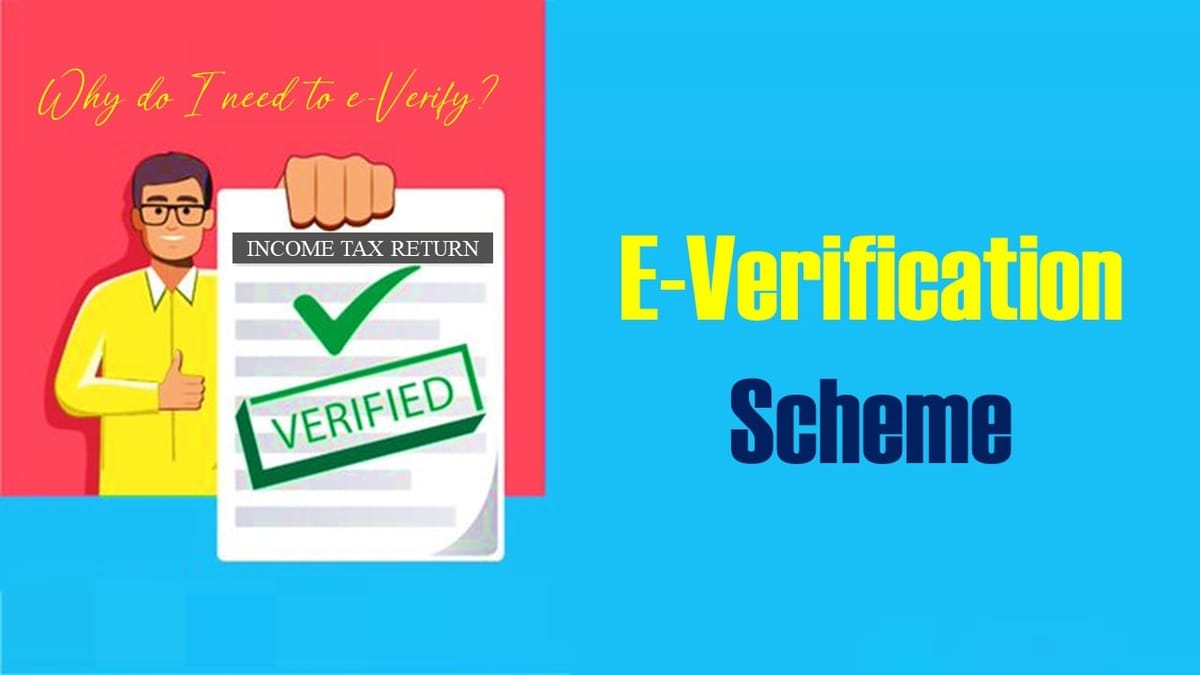The Income Tax Department has implemented a number of progressive measures to promote voluntarily filing taxes and support an open and non-intrusive tax administration.
Reetu | Mar 14, 2023 |

CBDT’s e-Verification Scheme harnesses Information Technology to facilitate Voluntary Compliance
The Income Tax Department has implemented a number of progressive measures to promote voluntarily filing taxes and support an open and non-intrusive tax administration. The e-Verification Scheme, 2021 (the “Scheme”), which was announced on December 13th, 2021, is one such significant initiative.
The Scheme intends to disclose and verify financial transaction information with the taxpayer that looks to be either under- or incorrectly stated in the taxpayer’s Income Tax Return (ITR) by effectively utilising information technology.
From a variety of sources, the Department has been gathering data on financial activities. A portion of it was previously disclosed to the taxpayer in the 26AS Statement. However the complete information is now presented to the taxpayer through the Annual Information Statement (AIS) in order to make effective use of the data gathered from multiple sources. If the Source has reported any information incorrectly, the AIS gives the taxpayer the option to contest it.
The information is verified by the Department with the Source, and if the Source certifies that there are no errors, the information is then subjected to risk analysis for e-Verification.
The entire e-Verification process is digital, with notices being sent out electronically and taxpayer responses being provided electronically as well. After the investigation is finished, an electronic verification report is created without any direct contact with the taxpayer.
The Scheme is very advantageous to taxpayers since it enables them to provide proof to support their explanation of a financial transaction. It’s a good idea to have a plan in place for when you need to change your mind about anything. Also, since the taxpayer is given access to information about the financial transactions, there is a chance to update or correct income that may not have been properly reported in the ITR that the taxpayer filed.
In other words, the e-Verification System encourages voluntary compliance by giving the taxpayer the chance to update their income tax return in accordance with section 139(8A) of the Income-tax Act of 1961 when they become aware of the risks.
Information about financial transactions relevant to FY 2019–20 has been submitted for e-Verification in around 68,000 cases on a pilot basis. The individual taxpayer has initially received information about the transactions via an online campaign. Over 35,000 instances have so far undergone e-Verification by the authorised Directorate, with the remaining cases undergoing verification.
Many taxpayers have filed Updated ITRs as a result of the Scheme’s chance for them to accept the information that differs from the originally filed ITR.
The FAQs on the e-Verification Scheme, 2021 are provided on the official website to help with a better knowledge of the Scheme and the many processes associated therewith.
In case of any Doubt regarding Membership you can mail us at contact@studycafe.in
Join Studycafe's WhatsApp Group or Telegram Channel for Latest Updates on Government Job, Sarkari Naukri, Private Jobs, Income Tax, GST, Companies Act, Judgements and CA, CS, ICWA, and MUCH MORE!"